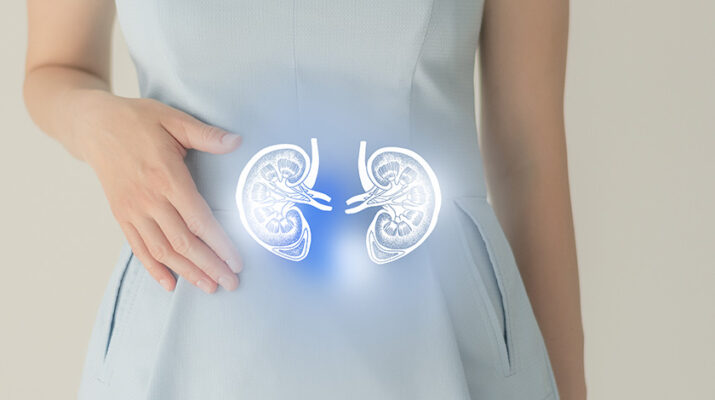By Ernst Lamothe Jr.
It’s a condition that arises gradually, but that can cause tremendous pain and affect quality of life.
Chronic kidney disease, also called chronic kidney failure, involves a measured loss of kidney function. A kidney’s function involves filtering wastes and excess fluids from the blood, which are then removed in your urine. Advanced chronic kidney disease causes dangerous levels of fluid, electrolytes and wastes to build up in your body.

“People could avoid or delay kidney failure if they saw a doctor once a year,” said physician Liise Kayler, chief of the division of transplant surgery in the department of surgery in the Jacobs School of Medicine and Biomedical Sciences at University of Buffalo.
Kayler, who is also the program director of the Regional Center of Excellence for Transplantation and Kidney Care at Erie County Medical Center, discusses five aspects of kidney disease.
1 — Kidney issues affect youth and adults
Some common kidney issues that affect children and adults are kidney stones, kidney infections, acute kidney injury and chronic kidney disease. Chronic kidney disease is especially significant because more than one in seven US adults — and as many as nine in 10 adults — have the condition.
“Young and old people can have high blood pressure. Often they don’t know it,” said Kayler. “Over time the high blood pressure can injure the kidneys. Young and old people can also have diabetes. Diabetes injures kidneys. When diabetes is managed optimally, kidney failure is less likely to happen.”
2 — Kidney disease signs
There are very few signs of early or moderate chronic kidney disease that only blood or urine testing will show. In very advanced situations, people may experience the symptoms of toxin buildup, which may include confusion, loss of appetite or foul taste, nausea and vomiting or itching. They may also notice the effects of fluid accumulation, including swelling in the legs and shortness of breath.
“Kidney stones are usually present with flank pain and blood in the urine. People suffering from kidney infections may have fever, vomiting and pain with urination,” she added. “Kidney disease is silent in the early stages. People don’t know they have kidney disease until the kidneys are nearly failing. When the kidneys are failing, the most obvious signs are vomiting, difficulty breathing, and ankle swelling. The best way to check for kidney disease is a blood test that is ordered by a doctor.”
3 — Family history
Some kinds of kidney disease are directly inherited on a single gene, like polycystic kidney disease. Other kidney diseases come about as a combination of many genes in addition to environmental factors, which also tend to run in families.
“Genetic causes of kidney disease are much less common than high blood pressure and diabetes,” said Kayler.
4 — How does dialysis work?
Dialysis is a procedure that replaces kidney function in people with kidney failure. It doesn’t fix the kidneys. Dialysis gets rid of the extra fluid. You can get dialysis treatments in a number of different ways; blood dialysis or belly dialysis (peritoneal dialysis), in a dialysis center or at home. They all serve the same purpose and work equally well.
“Dialysis is a machine that cleans the blood. It does a small fraction of the work that normal kidneys usually do. That’s why people who need dialysis often feel tired and itchy. They also have to minimize drinking fluids and eat a special diet,” said Kayler.
5 — Prevention
Some of the best things you can do to avoid kidney problems are likely the same things you do for the rest of your health. Eat a balanced diet that includes more plants than animals. Try to get moderate exercise most days of the week.
“Seeing a doctor allows high blood pressure and diabetes to be detected early and treatment started. With good treatment, kidney failure can be avoided or delayed,” Kayler added.

